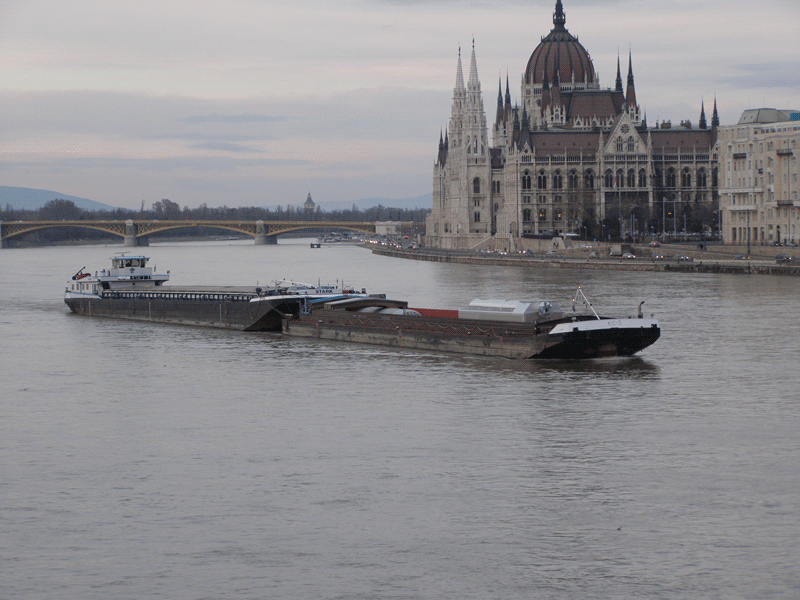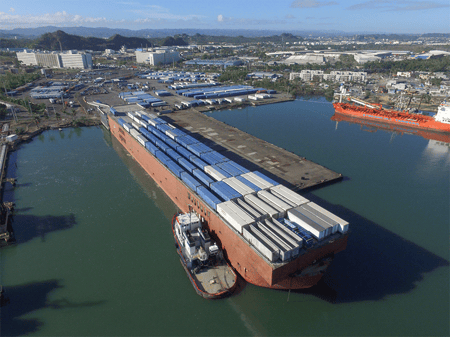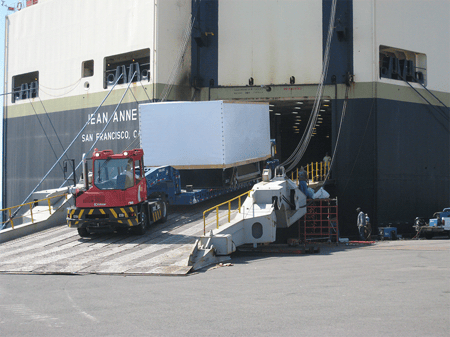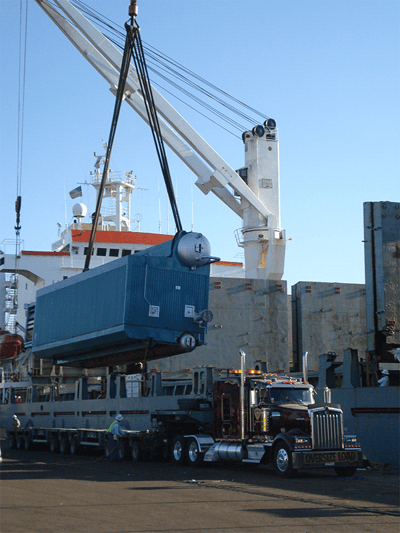
If you’ve attempted to ship any of your inventories internationally lately, you’re fully aware of the struggle all shippers are facing. It feels impossible to find any equipment to ship your products on or in. And if you can find something, it’s probably weeks or possibly even months out before it sails.
As a company that’s been helping ship goods internationally for more than 25 years, we’re used to the ins and outs of the unique international shipping market.
In this article, we’ll discuss what’s causing ocean freight rates to be so high and what you can do to overcome the challenges of the international shipping market.
The Source of The Ocean Freight Delays
The trade wars between the U.S. and China were already impacting global freight capacity, then COVID took off across the world. To adjust to the reduced demand, many ocean carriers began staging their equipment (like containers, vessels, etc.) further east.
Fast forward a few months when things started opening up again, demand skyrocketed and factories and supplies have rushed to fill record backorders Containers and vessels started filling up and sailing as fast as they could get them on the water.
The trouble we’re seeing now is there isn’t enough equipment in circulation to keep up with the global freight demand. You’ll notice we used the word circulation. That’s because, while you may have read about the shipping container shortage, there are many containers in existence, they’re just not being used. So it’s not that the equipment doesn’t exist, it’s just not in the right place.
These problems have now escalated with the grounding of the Ever Given container vessel in the Suez Canal in Egypt. Now freed and moving again, the stuck vessel caused massive delays in an already clogged global shipping market, which will cause ripples for weeks to come.
What Does This Mean For You?
Under normal circumstances, vessels typically pull into ports with thousands of containers that get discharged from the vessel, then unloaded in the port before being reloaded with goods ready to be exported.
The massive side-effect we’re now seeing is vessels sitting outside ports (literally dozens in Los Angeles alone) waiting to be let in because there’s no room for them. That also means the containers and vessels that need to be loaded for export purposes are still sitting full on the water waiting to be unloaded.
 This is leading to a logjam that’s causing significant delays in the global shipping market.
This is leading to a logjam that’s causing significant delays in the global shipping market.
Right now, one in five sailings from Asia to the west coast of the U.S. is “blank,” which means the shipment is skipped at the last minute. What’s more, because those shipments are skipped last-minute, international shipping providers book your cargo using those vessels, only to have to cancel on you.
Whether or not the vessel your cargo gets booked on will actually sail has become a game of Russian Roulette. If you’ve been unlucky enough to have that happen to you, your shipping partner can try to find space on the next booking, but chances are high it’s already full too. Now, the container sits at the port for weeks, which can cause major harm to your supply chain.
What Options Do You Have?
The way things are looking, it’s likely the troubles won’t get any better before the second half of 2021. Chances are pretty good you can’t wait that long to ship your inventories, so what can you do in the meantime?
Plan Ahead
When shipping internationally, you probably already plan with more advance notice than you do shipping regionally. If possible, plan even further out than you typically do. And have multiple backup plans because, unfortunately, chances are good your original plan will fall through.
Get Your Cargo Out of a Container
 While vessels and other equipment are also seeing shortages, containers seem to be seeing the biggest issues. If you can use a mafi trailer, an open-deck trailer or other kinds of specialized equipment instead of a container, that can help reduce wait times.
While vessels and other equipment are also seeing shortages, containers seem to be seeing the biggest issues. If you can use a mafi trailer, an open-deck trailer or other kinds of specialized equipment instead of a container, that can help reduce wait times.
Be Flexible
If you don’t need your cargo delivered as quickly as you originally requested, you may have better luck waiting. It’s still important to plan ahead so you don’t run into problems further down the road and delay delivery, but providing flexibility on time can help.

You may also have to be flexible on the upfront price and consider the overall costs. It may be cheaper to book on a vessel with a 60-day transit time, but if your production would come to a halt in 45 days, 60 days isn’t a viable option. You’ll want to pay the premium of a 30-day transit time so you get what you need to keep your production flowing.
If possible, also be flexible on which port you need your cargo shipped to. You could save time if you pick a different port that’s less congested and ship on land for a longer distance than you originally planned on.
Communicate Your Expectations Upfront
Provide as many details as possible to your international freight forwarder upfront. Let them know your top priorities, like delivery timelines or cost. That way, they can help find the solution that provides the most value for your needs.
Find a Reputable International Shipping Partner
Especially in today’s shipping climate, having a reliable international shipping partner is vital. Established international freight forwarders have quality relationships with vessel carriers, port services and domestic carriers.
That reduces the risk of unexpected issues when moving your freight. And when issues do arise, they’ll have the experience to find a solution fast to ensure minimal downtime for your cargo.
The Cargo Finds a Way
There’s a saying in our industry that “the cargo finds a way.” One way or another, your cargo will be delivered. Right now, that might mean it’ll be later than you’d like or come at a higher price.
But if you can communicate your expectations upfront, plan ahead (and be ready to use your backup plan) and be flexible, it’ll make your life that much easier.


